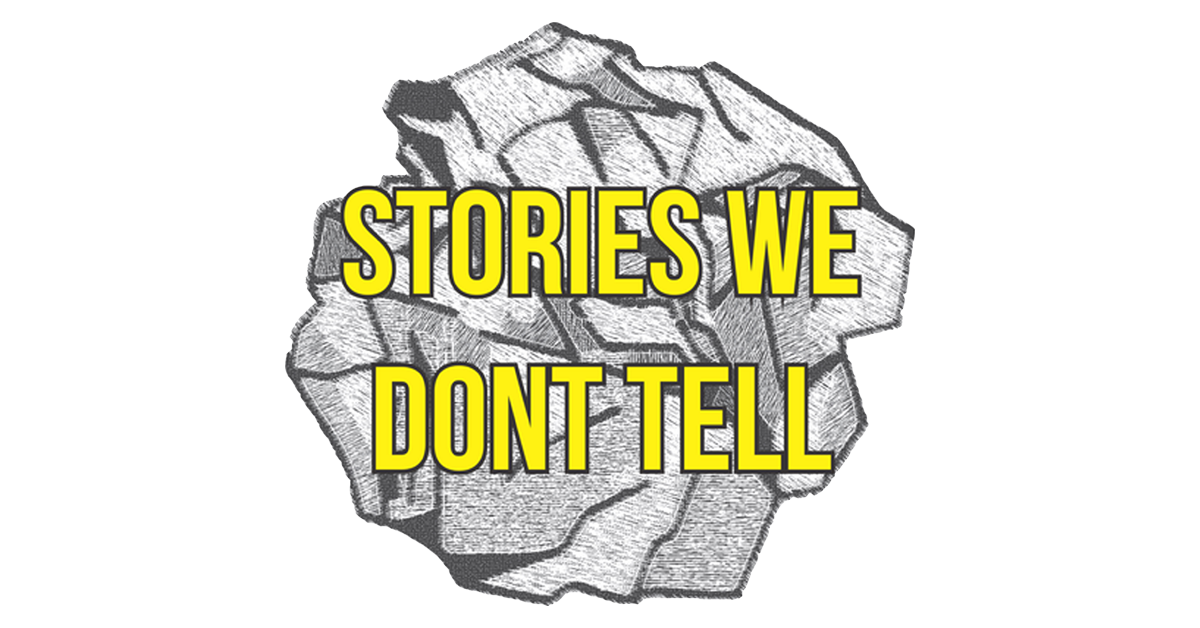This blog has been transcribed from the Stories We Don’t Tell Podcast Episode 72. Listen to that episode at this LINK or click on the image below.
Cast of Characters:
Stefan Hostetter (SH): co-founder of Stories We Don’t Tell and podcast co-host.
Paul Dore (PD): co-founder of Stories We Don’t Tell and podcast co-host.
PD: Welcome to the podcast! If you’re confused, tweet #SWDTconfused at @jeffreypauldore and @Steho_. We are very excited because we are back on a little bit of a roll of including stories again.
SH: The story for this episode as you'll notice from the beginning has a somewhat unique premise and format because most often than not when you're telling a personal story, the audience doesn't know what's going to happen or know the ending. So you can usually use that as a device - people are interested to see where the story goes. With today’s story, you know exactly what the outcome will be. Basically from the very beginning.
PD: Spoiler alert! Hillary Clinton didn't get elected as President of the United States.
SH: In case you have not found that out yet or been in a coma for the last year or so. I like the idea that when a person gets out of a coma, they wake up and the first thing is they check our podcast.
PD: That is committed. If you're listening - we're really glad that you're out of the coma. Welcome back. And also we're sorry. Basically, in the story you’ll hear later, a bunch of friends went to New York City on the election day last year. They wanted to be there when history was made, to watch the first female president come into office. The dilemma when writing was to tell a story where everybody in the audience knows what the outcome is.
SH: I also think it's important that the outcome isn't super dramatic. Everyone knows it’s going to end in a depressing way. That's ahead for him and the audience knows it. When he started telling the story you could already feel the room or even when told to us in a small group everyone sort of cringed as soon as he started explaining the story. It definitely creates a specific kind of tension you can use to your advantage.
PD: Yes, what was cool about the story is that there's two stories going. There's two different layers. There's the story that he is telling on the surface which is about the excitement of going to New York and the lead up. You can play with that because in the audience's mind they probably shared that excitement that everybody had. I guess we should make clear also that our audiences are probably not supporting the other guy.
SH: If you are a supporter of the current President who listens to this podcast, also tweet #SWDTconfused at us because I want to talk to you. And so one thing that was interesting about the problem that the storyteller came across was in the specific nature of the story that he had to work through. There were a series of small frustrations leading up to the event, but everyone in the audience sort of knew that he was in store for a much greater disappointment. If you had not known the end of the story then it could have been written in a completely different way. And so that was something he had to realize was that when the audience knows how the story is going to end, you almost need to lean into your ignorance of how it's going to end.
PD: Yes, he had to choose a few well-placed details. Because there's a larger story going on that the audience is connecting to.
SH: And I think that's also important when you're telling a story about a big experience. Everyone who experienced that particular event has a specific feeling that resonates with them, so those personal details become even more important. All these little pieces of individual details feed into the story and provide a larger context for the audience.
PD: For these kind of stories the audience is going to be imparting their own experience of that night. So, remember: if you’re as confused as we are, tweet #SWDTconfused.

